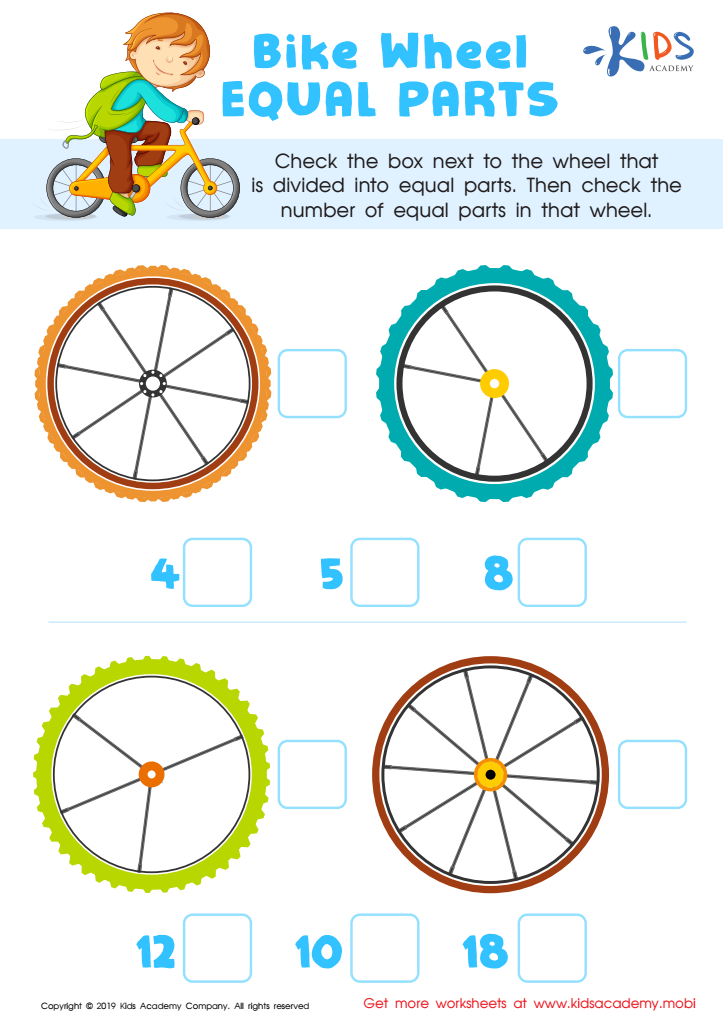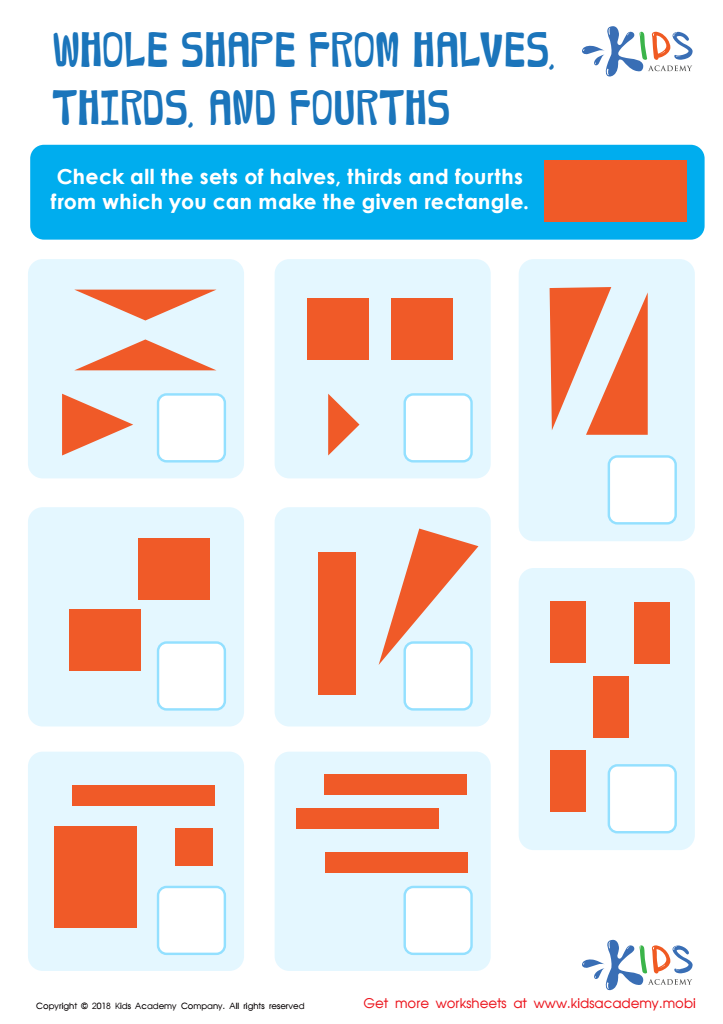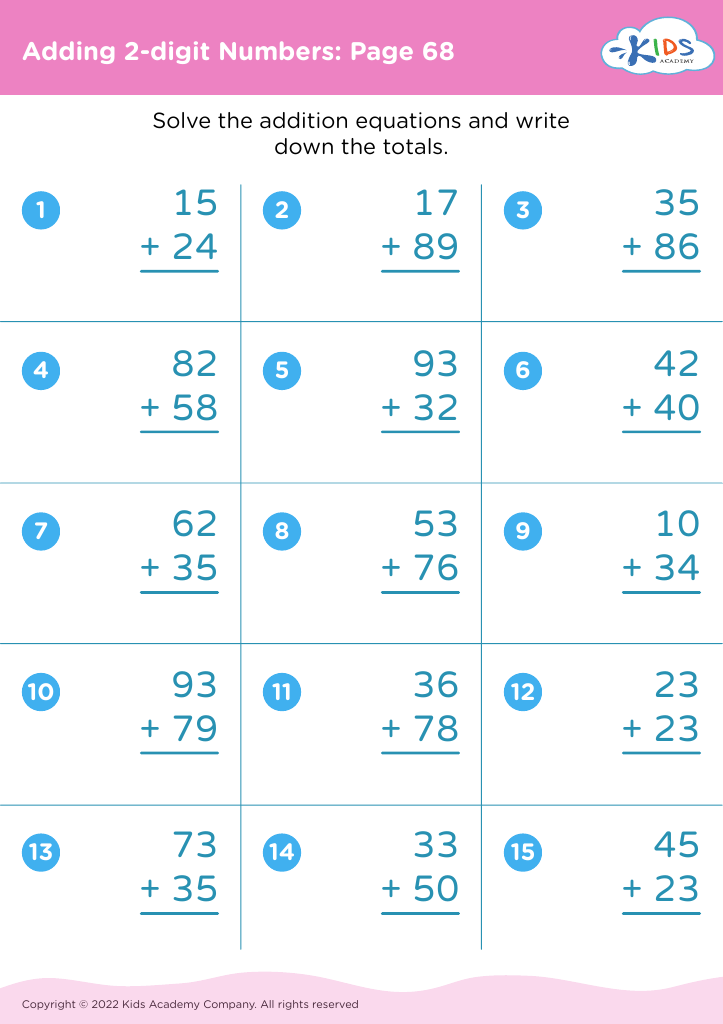Fractions understanding Math Worksheets for Ages 5-7
3 filtered results
-
From - To
Enhance your child's math skills with our comprehensive "Fractions Understanding Math Worksheets" tailored for ages 5-7. These engaging worksheets are designed to introduce young learners to the concept of fractions through interactive and age-appropriate activities. Children will explore basic fraction principles, including halves, thirds, and quarters, using visual aids and hands-on exercises. Our resources promote a solid foundational understanding while making learning fun and accessible. Ideal for home or classroom use, these worksheets will help your child build confidence and proficiency in math. Start your child’s journey in fractions today with our beautifully crafted and educational materials!


Bike Wheel Equal Parts Worksheet


Whole Shape from Halves, Thirds and Fourths Worksheet
Understanding fractions is a crucial mathematical concept for children aged 5-7, and both parents and teachers should prioritize it for several reasons. First, fractions form the foundation for more advanced mathematical concepts, such as division, ratios, and percentages, which children will encounter in later grades. By grasping the basics of fractions early on, students can build confidence and a solid understanding that will serve them throughout their education.
Second, fractions enhance critical thinking and problem-solving skills. When children learn about parts of a whole, they begin to visualize relationships and develop their ability to compare quantities. This not only helps in math but also nurtures analytical skills applicable in everyday situations.
Moreover, knowledge of fractions supports real-life applications, such as sharing food, measuring ingredients for cooking, or understanding basic concepts in money management. This makes math feel relevant and engaging for young learners.
Finally, fostering a strong grasp of fractions promotes positive attitudes toward math, reducing anxiety and building a love for learning. When parents and teachers emphasize the importance of fractions, they encourage children to view math as a valuable and enjoyable subject, ultimately setting them up for lifelong success.


 Assign to My Students
Assign to My Students




















